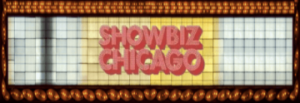Boho’s Tartuffe
Controversy and cynicism are sure to follow any modern translation of a classic. Moliere’s “Tartuffe”, currently presented by the Bohemian Theatre Company and directed by Peter Robel has decided to tread in these waters. For their staging, the company has decided on the 1991 Ranjit Bolt very controversial translation which in many aspects, abandons wry wit for in your face comedy. In any other hands, this could end up as an artistic debacle. However, Mr. Robel never lets the piece get away from him and by understanding Moliere’s subtleties and intentions, allows his actors to explore other dimensions of these well known characters not often seen in less radical translations.
The original story remains intact here. Tartuffe is a mere con artist masquerading under the cloak of clergy to gain what most religious zealots want: property. That property is owned by Orgon (Sean Thomas), where Tartuffe has made himself part of the family, much to the chagrin of the others who see the obvious. It is in the obvious that the story finds its humor and pathos.
Mr. Robel has assembled a sensational cast. In the title role, Jeremy Trager is narcissistic and at times maniacal. Saren Nofs-Snyder’s nosy servant takes her cues from Marla Gibbs on “The Jeffersons” and is terrific; as is Chris Ballou as the lovelorn Valere, who possesses sensational comic timing. Aesthetically the production is also beautiful, from Nick Belley’s soft hued lighting of Chad Bianchi’s very functional set to Kate Setzer Kamphausen’s glorious costumes, “Tartuffe” is another success for BoHo which as a theatre company, has become one of Chicago’s biggest assets.
There are better modern translations of “Tartuffe”. Christopher Hampton’s 1983 version is far superior containing much more of a conversational dialogue with the characters. But Ranjit’s “Tartuffe” does have its place. In our time where religious pompousness seems know no boundaries, either ethically or criminally, “Tartuffe” is the ultimate reflection on our own blindness on trusting men of faith.
“Tartuffe” runs through February 12th at Theatre Wit, 1229 W. Belmont, Chicago. For tickets please visit www.theatrewit.org or www.bohotheatre.com

